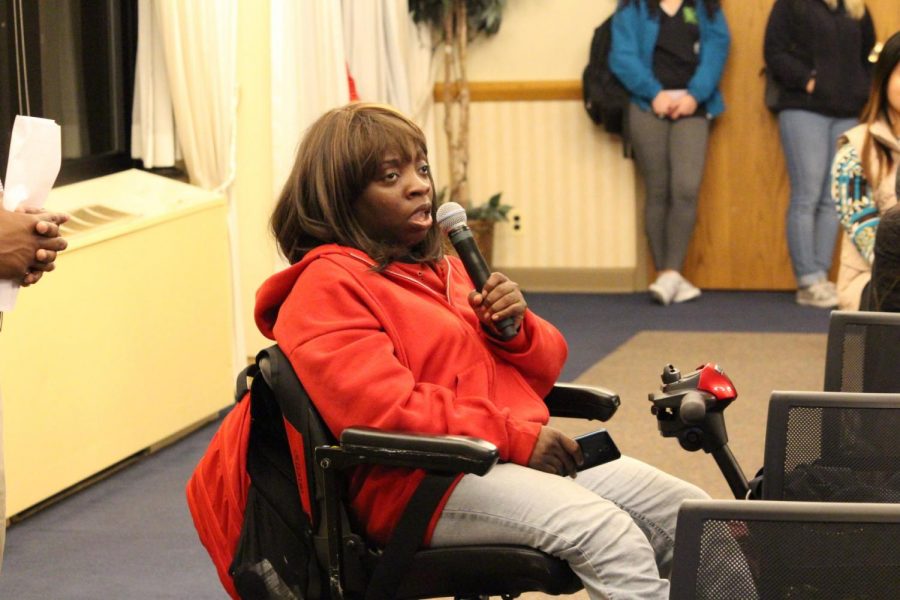Mental health services sees client spike in students
November 13, 2017
DeKALB — The symptoms of anxiety and depression, both of which have seen an increase in reported prevalence on college campuses, can relentlessly harm a student’s social life and academic success.
“Something very small will become something very big to me, very quickly,” said sophomore communication major Noah Haney. “A very small issue will become major, and anxious feelings come to me very quickly. I can see where it happens — where it goes 0 to 100 very fast. I can’t control it as much as I’d like to.”
Haney is not alone in dealing with these symptoms.
The Center for Collegiate Mental Health, an organization based out of Penn State University, is affiliated with NIU Counseling and Consultation Services, along with a conglomerate of more than 400 other schools. It works as a database to keep track of mental health via the use of surveys filled out by students. These surveys are used to report what trends are occurring in their mental health.
A 2016 report shows an increase in clients for Center for Collegiate Mental Health affiliates from previous years. They saw 150,483 students in 2016, nearly 50,000 more than in 2015. Of those students, 61 percent were consulting with a counselor about anxiety, 50 percent were consulting concerning mental health and 49 percent were consulting concerning depression; 33 percent of students had considered suicide, up from 23 percent in 2010.
For some, depression and anxiety interfere with some of the simplest tasks of daily life.
“It affects my focus and memory,” said junior psychology major Deni Van. “It affects my ability to leave the house and even go to class.”
The rise in mental health problems can be felt on NIU’s campus. Liz Benavides, Counseling and Consultation Services associate director, said students face a wide range of issues, leading to a surge in tendencies symptomatic of anxiety and depression.
“There’s definitely more pressure on students when you think about the economy,” Benavides said. “There’s a lot riding on their ability to manage and get good grades and still manage life.”
Benavides said she thinks the rise in the number of clients has to do with anxiety and depression becoming less stigmatized.
“In the past, people often didn’t say ‘I’m anxious,’ or ‘I’m feeling depressed,’ ” Benavides said. “I think more people are willing to acknowledge that and say ‘yes, it’s OK; this is something that I am.’ ”
In an effort to continue to curb the stigma surround mental health issues, the NIU Student Association launched a program called the No Shame Campaign in 2015, an initiative featuring events and forums dedicated to helping students and marginalized groups on campus cope with mental health struggles.
“The first thing we want to do is raise awareness,” said SA Senate Speaker Christine Wang. “If we don’t raise awareness, it’s like there isn’t a problem.”
One of the annual events for the campaign is Don’t Stress the Test, an event created to give students an idea of how to healthily cope with the severe stress brought on by finals. A date for this year’s event has not yet been determined, Wang said.
Despite the efforts of the school and the SA, some students still feel the effects of the stigma.
“People tighten up,” Van said. “They don’t know what to say. They don’t look you in the eye anymore. They get uncomfortable; they freeze up.”
Sophomore nursing major Elisabeth Cogdill stressed the difficulty she faces when disclosing her own internal struggle.
“It’s difficult to talk about my personal life or the things that I deal with regarding my mental health because of the way people will look at me,” Cogdill said. “I may seem like a normal person, a normal student, a normal mom, but I have severe bouts of anxiety and depression.”
Counseling and Consultation Services offers services for students coping with struggles similar to Cogdill’s including individual sessions, group therapy and crisis management.
“If we have someone come in and they’re having panic attacks, they’re thinking college isn’t right for them or they’re thinking of hurting themselves, we give them the support that they need,” Benavides said.
Students do not always use school-sponsored services to cope. Edwin Esmenda, graduate law student and Army veteran, said he joins clubs on campus to keep himself busy and away from trouble. Haney said it helps to have friends who can lend an ear when things get rough.
“Just having close friends around me that I can confide in and know I can trust helps,” Haney said. “Even if they don’t fully understand, they can say ‘okay, we’ve seen this before, we know what’s happening’. I’m not always looking for an answer; I’m looking for support.”
While finding a friendly ear to vent to is an option for some, it is not always a viable coping mechanism. All sessions with Counseling and Consultation Services are confidential and free for all students.
“When students come in and they are distressed and they are feeling hopeless, the fact that they are willing to reach out and to be vulnerable and to be able to say ‘I really need support,’ and when those students leave with that sense of relief in their eyes, is awesome,” Benavides said.
Representatives of the KishHealth System Behavioral Health Services at Ben Gordon Center, 12 Health Services Drive, did not respond to request for comment.







